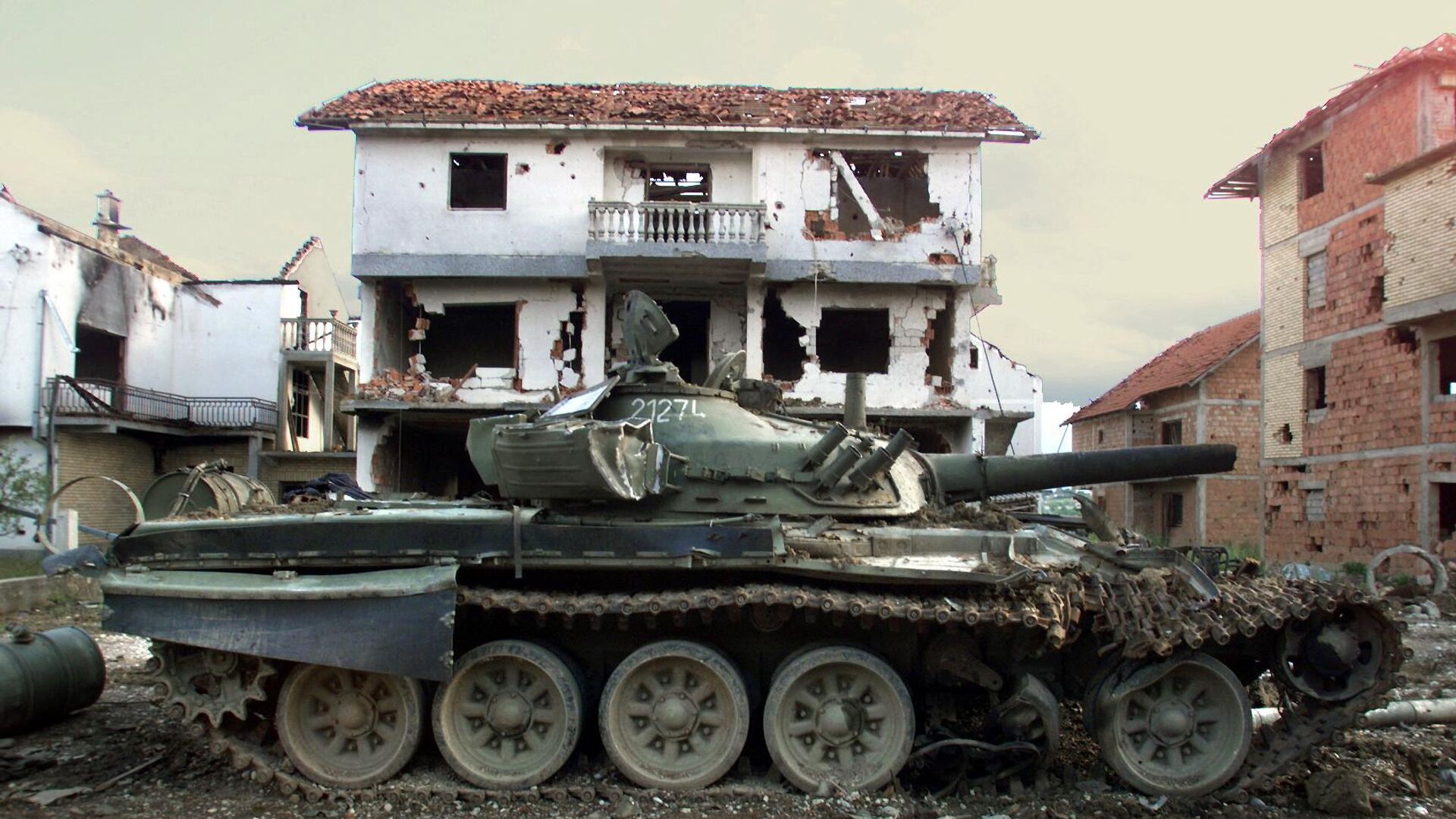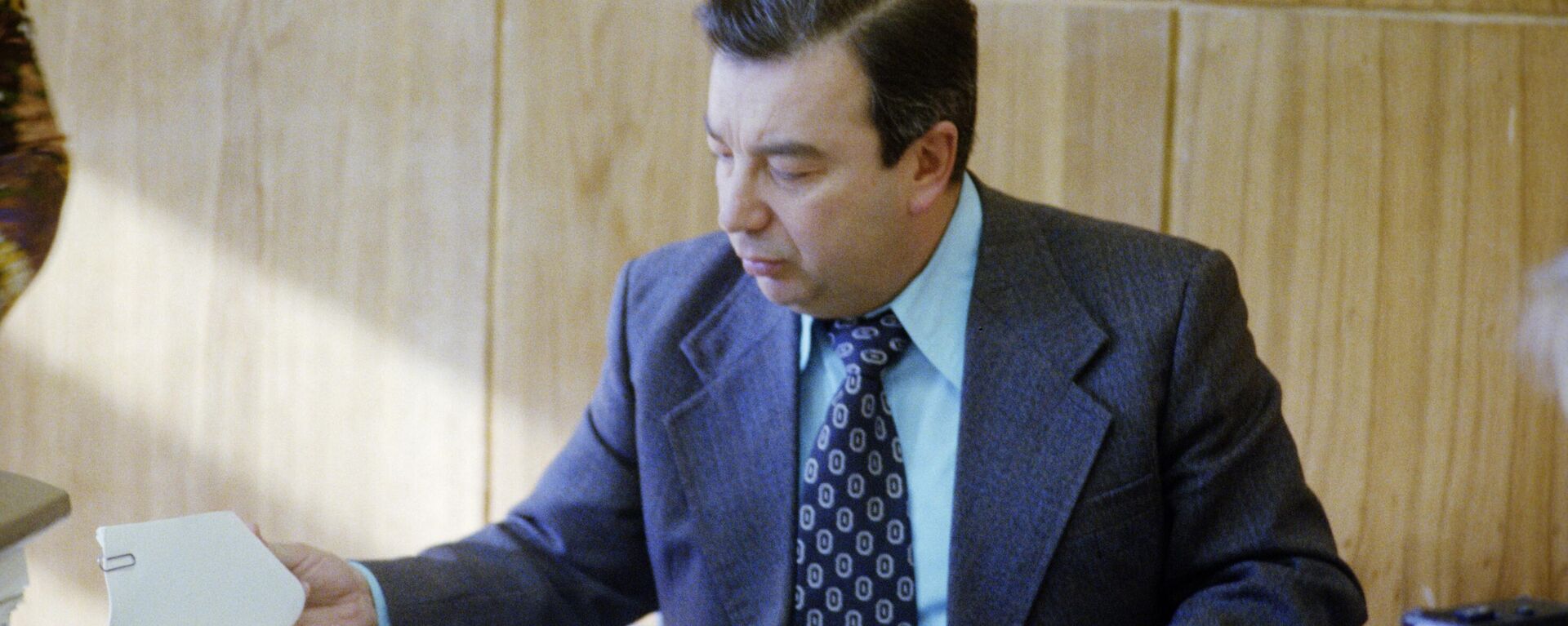https://sputnikglobe.com/20240325/anti-nato-rally-in-belgrade-starts-with-moment-of-silence-for-moscow-terror-attack-victims-1117533023.html
Anti-NATO Rally in Belgrade Starts With Moment of Silence for Moscow Terror Attack Victims
Anti-NATO Rally in Belgrade Starts With Moment of Silence for Moscow Terror Attack Victims
Sputnik International
A rally marking the 25th anniversary of the NATO bombing of Yugoslavia in Belgrade began with a minute of silence in memory of the victims of the terrorist attack in Russia, a Sputnik correspondent reported.
2024-03-25T02:16+0000
2024-03-25T02:16+0000
2024-03-25T02:17+0000
world
yugoslavia
nato
serbia
russia
alexander botsan-kharchenko
aleksandar vulin
moscow concert hall attack
https://cdn1.img.sputnikglobe.com/img/07e8/03/18/1117528990_0:0:1728:972_1920x0_80_0_0_52c59244d9023f39a475bbab081563bc.jpg
The demonstration took place on Sunday afternoon at the Eternal Flame memorial dedicated to the military and civilian casualties of the 1999 NATO bombing of Yugoslavia, which at the time included Serbia and Montenegro.Despite the cold and rainy weather, rally participants brought Serbian and red flags along with signs condemning NATO's aggression. The demonstration was attended by Russian Ambassador to Serbia Alexander Botsan-Kharchenko, Deputy Chair of Russia's Federation Council Defense Committee Vladimir Chizhov and delegates of the Cuban Embassy in Serbia. Representatives of European left-wing organizations also took part in the rally, carrying Greek and Palestinian flags. Before the rally, its organizers from the New Communist Party of Yugoslavia made a request to relight the flame at the memorial, which was extinguished when the government of then-Yugoslav President Slobodan Milosevic was overthrown in October 2000. The memorial was unveiled in June 2000 in the presence of the leadership of the Federal Republic of Yugoslavia. The monument consists of a 30-meter-tall (98-foot-tall) pedestal standing on the bank of the Danube River with a torch on top that spewed a flame three meters into the air.After Milosevic was removed from power on October 5, 2000, the memorial was vandalized and the gas flow to the torch was cut off. Restoration works at the monument and around it were launched in 2009, on the initiative of the Serbian Generals and Admirals Club. In 1999, an armed confrontation between Albanian separatists from the Kosovo Liberation Army and the Serbian army led to a bombing of what was then the Socialist Federal Republic of Yugoslavia, consisting of Serbia and Montenegro, by NATO forces. The operation was undertaken without the approval of the UN Security Council and was based on allegations by Western countries that the Yugoslav authorities were allegedly carrying out ethnic cleansing of Kosovo Albanians.NATO airstrikes continued from March 24 to June 10, 1999 and claimed the lives of over 2,500 people, including 87 children.
https://sputnikglobe.com/20240324/the-cranes-are-flying-commemoration-ceremony-held-in-crocus-city-hall-1117530898.html
https://sputnikglobe.com/20240324/u-turn-over-atlantic-how-russian-pm-primakov-showed-moscow-wont-be-us-satellite-1117506919.html
yugoslavia
serbia
russia
Sputnik International
feedback@sputniknews.com
+74956456601
MIA „Rossiya Segodnya“
2024
Sputnik International
feedback@sputniknews.com
+74956456601
MIA „Rossiya Segodnya“
News
en_EN
Sputnik International
feedback@sputniknews.com
+74956456601
MIA „Rossiya Segodnya“
Sputnik International
feedback@sputniknews.com
+74956456601
MIA „Rossiya Segodnya“
anti-nato rally in belgrade, terrorist attack in russia, 1999 nato bombing of yugoslavia, yugoslavia, russia serbia, the eternal flame memorial in belgrade
anti-nato rally in belgrade, terrorist attack in russia, 1999 nato bombing of yugoslavia, yugoslavia, russia serbia, the eternal flame memorial in belgrade
Anti-NATO Rally in Belgrade Starts With Moment of Silence for Moscow Terror Attack Victims
02:16 GMT 25.03.2024 (Updated: 02:17 GMT 25.03.2024) BELGRADE (Sputnik) - A rally marking the 25th anniversary of the NATO bombing of Yugoslavia in Belgrade began with a minute of silence in memory of the victims of the terrorist attack in Russia, a Sputnik correspondent reported.
The demonstration took place on Sunday afternoon at the Eternal Flame memorial dedicated to the military and civilian casualties of the
1999 NATO bombing of Yugoslavia, which at the time included Serbia and Montenegro.
Despite the cold and rainy weather, rally participants brought Serbian and red flags along with signs condemning NATO's aggression. The demonstration was attended by Russian Ambassador to Serbia Alexander Botsan-Kharchenko, Deputy Chair of Russia's Federation Council Defense Committee Vladimir Chizhov and delegates of the Cuban Embassy in Serbia. Representatives of European left-wing organizations also took part in the rally, carrying Greek and Palestinian flags.
"They [the West] demand from us the unthinkable — to recognize the independence of Kosovo, to renounce the Republika Srpska of Bosnia and Herzegovina and to impose sanctions against Russia, but they do not ask us to forgive them for killing our children ... All they can get from us is contempt," Aleksandar Vulin, the leader of Serbia's Movement of Socialists and former head of the Security Intelligence Agency, said after the moment of silence.
Before the rally, its organizers from the New Communist Party of Yugoslavia made a request to relight the flame at the memorial, which was extinguished when the government of then-Yugoslav President Slobodan Milosevic was overthrown in October 2000.
The memorial was unveiled in June 2000 in the presence of the leadership of the Federal Republic of Yugoslavia. The monument consists of a 30-meter-tall (98-foot-tall) pedestal standing on the bank of the Danube River with a torch on top that spewed a flame three meters into the air.
After Milosevic was removed from power on October 5, 2000, the memorial was vandalized and the gas flow to the torch was cut off. Restoration works at the monument and around it were launched in 2009, on the initiative of the Serbian Generals and Admirals Club.
In 1999, an armed confrontation between Albanian separatists from the Kosovo Liberation Army and the Serbian army led to a bombing of what was then the Socialist Federal Republic of Yugoslavia, consisting of Serbia and Montenegro, by
NATO forces. The operation was undertaken without the approval of the UN Security Council and was based on allegations by Western countries that the Yugoslav authorities were allegedly carrying out ethnic cleansing of Kosovo Albanians.
NATO airstrikes continued from March 24 to June 10, 1999 and claimed the lives of over 2,500 people, including 87 children.




